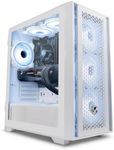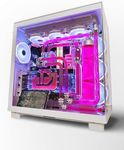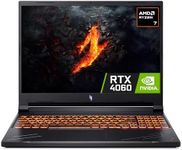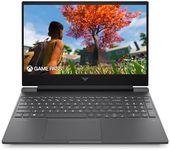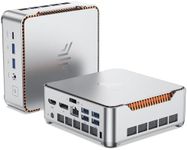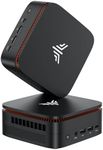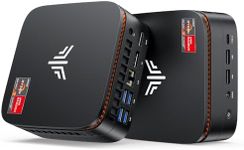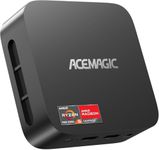Buying Guide for the Best Gaming Pc
Choosing the right gaming PC can significantly enhance your gaming experience. It's important to consider what types of games you want to play and at what settings, as this will guide you in selecting the right components. A gaming PC is a combination of various parts that work together to deliver the performance you need. Understanding the key specifications will help you make an informed decision that aligns with your gaming needs and future-proof your investment.Processor (CPU)The CPU is the brain of your gaming PC, responsible for executing instructions and processing data. It's crucial for overall system performance and can affect how well your games run. CPUs are often categorized by their core count and clock speed. More cores can handle more tasks simultaneously, which is beneficial for multitasking and running demanding games. Clock speed, measured in GHz, indicates how fast a CPU can process instructions. For gaming, a balance between core count and clock speed is ideal. If you play CPU-intensive games or plan to stream, opt for a higher core count. For general gaming, a mid-range CPU with a good clock speed should suffice.
Graphics Card (GPU)The GPU is the most critical component for gaming, as it renders images, animations, and video for the display. A powerful GPU allows for higher resolutions, better graphics settings, and smoother frame rates. GPUs are categorized by their performance level, often indicated by model numbers. Entry-level GPUs are suitable for less demanding games or lower settings, while mid-range GPUs can handle most games at medium to high settings. High-end GPUs are designed for the latest games at ultra settings and higher resolutions like 4K. Choose a GPU based on the games you play and the resolution you desire.
RAMRAM, or Random Access Memory, is crucial for multitasking and ensuring smooth gameplay. It temporarily stores data that your CPU needs quick access to. More RAM allows for better performance in games and when running multiple applications. Gaming PCs typically require at least 8GB of RAM, but 16GB is recommended for modern gaming to ensure smooth performance and future-proofing. If you plan to stream or use memory-intensive applications, consider 32GB.
StorageStorage affects how much data you can store and how quickly your system can access it. There are two main types: HDDs (Hard Disk Drives) and SSDs (Solid State Drives). SSDs are faster and improve load times, making them ideal for gaming. HDDs offer more storage for a lower price, suitable for storing large files. A combination of both is often recommended: an SSD for your operating system and games for speed, and an HDD for additional storage. Consider your storage needs based on the number of games and other data you plan to store.
Cooling SystemA cooling system is essential to prevent your gaming PC from overheating, which can lead to performance issues or hardware damage. There are air coolers and liquid coolers. Air coolers are generally sufficient for most users and are easier to maintain. Liquid coolers offer better cooling performance and are quieter, but they can be more expensive and require more maintenance. If you plan to overclock your CPU or GPU, or if you live in a hot climate, investing in a better cooling system is advisable.
Power Supply Unit (PSU)The PSU provides power to all the components in your gaming PC. It's important to have a reliable PSU with enough wattage to support your system, especially if you have high-end components. PSUs are rated by their wattage and efficiency. A higher wattage PSU can support more powerful components and future upgrades. Efficiency ratings, such as 80 Plus Bronze, Silver, Gold, etc., indicate how effectively the PSU converts power from the outlet to your PC. Choose a PSU with enough wattage for your current setup and any potential upgrades.
MotherboardThe motherboard is the main circuit board that connects all the components of your gaming PC. It determines the compatibility of your CPU, RAM, and other components. Motherboards come in different sizes, such as ATX, Micro-ATX, and Mini-ITX, which affect the size of the case you need. They also vary in features like the number of RAM slots, USB ports, and expansion slots. Choose a motherboard that supports your current components and any future upgrades you might consider, such as additional RAM or a second GPU.


